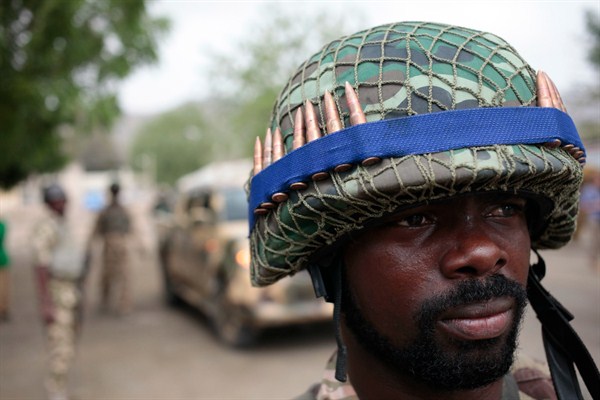MAIDUGURI, Nigeria—Lirfa Dashe, a lieutenant in the Nigerian army, was due to get married this month. Instead he is buried in the cemetery of Mai Malari barracks, alongside other soldiers killed in the seemingly endless conflict against the jihadist insurgency of Boko Haram.
At the entrance to the cemetery, located in this city in northeastern Nigeria, is a cenotaph with the names of the fallen inscribed on plaques. There are 1,307 names etched so far, stretching back to 2013. Mai Malari, the home of the army’s Seventh Division, is just one of several sites where soldiers killed in the northeastern theater are buried.
Boko Haram’s official name is Jama’atu Ahlis Sunna Lidda’awati wal-Jihad, which in Arabic means “People Committed to the Propagation of the Prophet’s Teachings and Jihad.” It originated in 2002 as a local Salafist group led by Mohammed Yusuf, a charismatic young cleric who preached openly in Maiduguri against “Western” values and the Nigerian government. The group launched an insurrection in 2009 that failed, and Yusuf was killed while in police custody.
Listen to Obi Anyadike discuss this article on WPR’s Trend Lines Podcast. His audio starts at 19:39.

